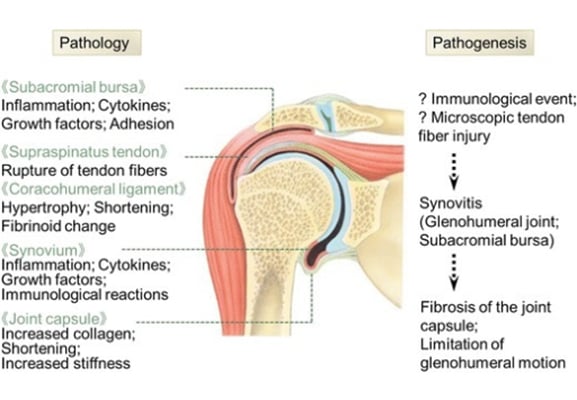Adhesive capsulitis (frozen shoulder):
There are three distinct clinical phases:

Subjective History:
The patient will present with insidious onset of shoulder and upper arm pain which may progress down the arm coupled with gradually reducing range of movement.
Occasionally the patient may present with the onset of the above symptoms following trauma
Pain is often worse at night time.
Objective Examination:
On examination there will be a marked reduction in passive range of movement of the shoulder joint in a capsular pattern with most loss of external rotation followed by flexion/abduction and then internal rotation
Passive abduction of the shoulder will produce early scapular rotation ( typically below 80 degrees abduction)
Radiograph will be clear and help rule out differential diagnosis of pathologies which would produce a capsular pattern at the shoulder such as osteoarthritis.
References
Image from OpenI – Licensed by CC